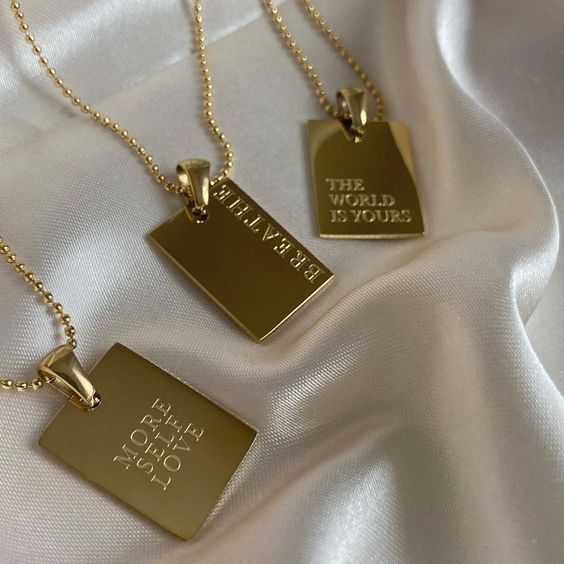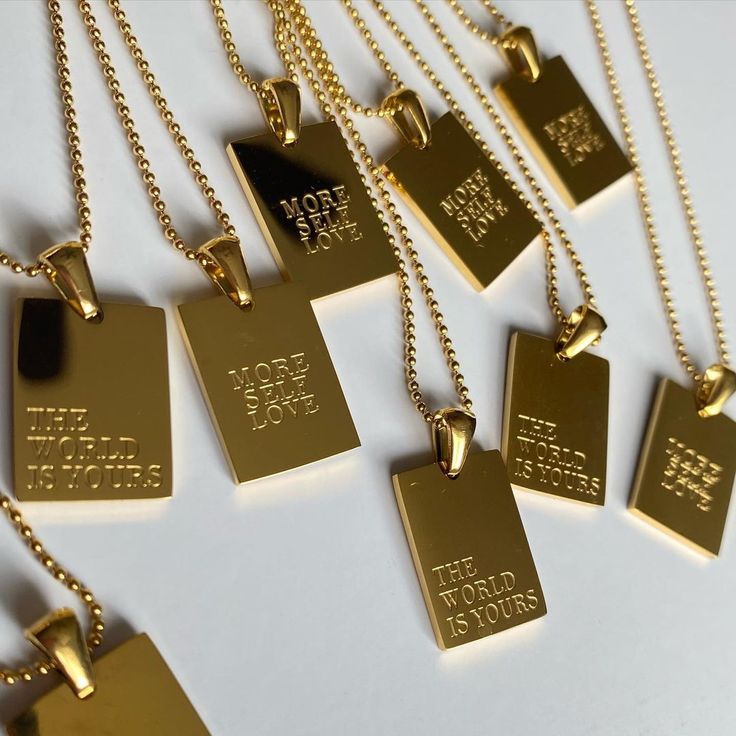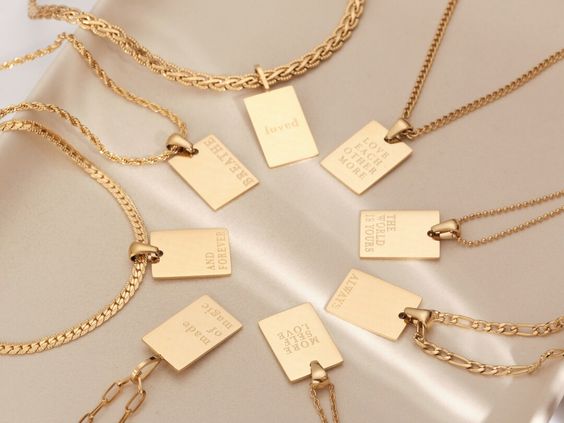Jewelry is a form of self-expression that has been around for centuries. When buying jewelry, it is important to know what you are getting. One way to determine the authenticity of your jewelry is through jewelry stamps. Jewelry stamps are small markings on jewelry that indicate the metal type, quality, and sometimes the maker. In this article, we will take an in-depth look at jewelry stamps, how to interpret them, and their importance.
Jewelry stamps have been used for centuries as a way to indicate the purity and quality of precious metals. In ancient times, jewelers used unique marks to identify their work, while in medieval Europe, guilds were responsible for regulating and marking precious metals. The first standardized hallmarking system was established in France in the 13th century, and other European countries followed suit in the centuries that followed. Today, many countries have their own hallmarking systems, each with their own unique symbols and regulations. As the jewelry industry has evolved, so too has the technology used to create jewelry stamps. Modern stamping machines are highly precise and can produce intricate markings with ease, allowing for more detailed and accurate jewelry stamps.
Understanding the Importance of Jewelry Stamps
Jewelry stamps, also known as hallmarks, are markings on jewelry that indicate the metal type and purity. These stamps serve as a way for consumers to determine the authenticity and value of a piece of jewelry. The information provided by a jewelry stamp can help buyers make informed decisions when purchasing jewelry, as well as help sellers accurately market and price their products. Without a jewelry stamp, it can be difficult to determine the quality and value of a piece of jewelry, making it important for both buyers and sellers to understand the significance of these markings.

What are Jewelry Stamps?
Jewelry stamps, also known as hallmarks or maker’s marks, are small markings on jewelry that indicate the metal type, quality, and sometimes the maker. These marks are typically found on the inside of rings or on the clasp of necklaces and bracelets. The use of jewelry dates back to the 14th century when craftsmen would stamp their work with a symbol to indicate their workmanship.
The Importance of Jewelry Stamps
Jewelry stamps serve as a form of assurance to the buyer that they are getting what they paid for. They indicate the metal type and quality, which helps to determine the value of the piece. Additionally, jewelry stamps can help in identifying the maker of the piece, which can be useful in determining its origin and history.
How Jewelry Stamps are Made
Jewelry stamps are created using a process called “stamping.” This involves the use of a stamping machine, which applies pressure to a metal stamp that has the desired design or marking engraved on it. The stamp is then pressed onto the metal surface of the jewelry, leaving a clear impression of the design. The stamp itself is usually made from steel, and is carefully crafted to ensure that the markings are clear and accurate. The process of stamping allows for consistent and reliable markings on jewelry, which is important for both buyers and sellers in the jewelry industry.
Common Jewelry Stamp Symbols and Meanings
Jewelry stamps often contain a series of symbols or numbers that provide information about the metal type and purity. For example, a stamp of “14K” indicates that the piece is made of 14 karat gold, while a stamp of “925” indicates that the piece is made of sterling silver. Other common stamp symbols include “18K” for 18 karat gold, “PT” for platinum, and “CZ” for cubic zirconia. Understanding the meanings behind these stamp symbols can help buyers make informed decisions about the quality and value of a piece of jewelry. It’s important to note that jewelry stamp symbols can vary by region, so it’s important to do your research and consult with a reputable jeweler if you’re unsure about a particular stamp.

Interpreting Jewelry Stamps
Interpreting jewelry stamps can be confusing, especially for those who are new to the world of jewelry. Here are some common jewelry stamps and their meanings:
Metal Type Stamps
- 925 or .925: Sterling Silver
- 14K, 18K, 24K: Gold
- PT, PLAT, or 950: Platinum
Quality Stamps
- 10K, 14K, 18K: Gold purity
- 417, 585, 750: Gold fineness
- 925, 958, 999: Silver purity
- 950: Platinum purity
Maker’s Marks
Some jewelry pieces may also have the maker’s mark stamped on them. These marks are unique to the maker and can help in identifying the origin and history of the piece.
Understanding Jewelry Stamp Regulations
Jewelry stamp regulations vary by country. In the United States, the Federal Trade Commission (FTC) has established regulations that require jewelry manufacturers to stamp their pieces with a quality mark and a maker’s mark. The FTC also requires that any gold-plated or silver-plated jewelry be marked as such.
How to Identify Fake Jewelry Stamps
Unfortunately, there are counterfeit jewelry pieces that have fake stamps on them. Here are some tips to identify fake jewelry stamps:
- Check for inconsistencies in the stamp
- Look for signs of wear on the stamp
- Check the overall quality of the piece
- Be wary of extremely low prices
Conclusion
Jewelry stamps are an important aspect of buying and selling jewelry. They serve as a form of assurance to the buyer that they are getting what they paid for. It is important to understand how to interpret jewelry and to be aware of jewelry stamp regulations. By following these guidelines, buyers can ensure that they are getting authentic and valuable pieces of jewelry.
In conclusion, jewelry are an essential part of the jewelry industry that helps buyers and sellers determine the authenticity, quality, and value of a piece of jewelry. The history of jewelry stamps dates back centuries, and today’s technology allows for highly precise markings. ring size chart Understanding the symbols and meanings of jewelry stamps can be confusing, but it’s important to do your research and consult with a reputable wholesale silver jewelry to ensure that you’re making informed decisions. By knowing how to interpret jewelry stamps and identify fake stamps, you can be confident in your jewelry purchases and appreciate the beauty and value of your wh for years to come.
This entry was posted in Jewelry Blog and tagged 925 rings wholesale, silver 925, wholesale.
